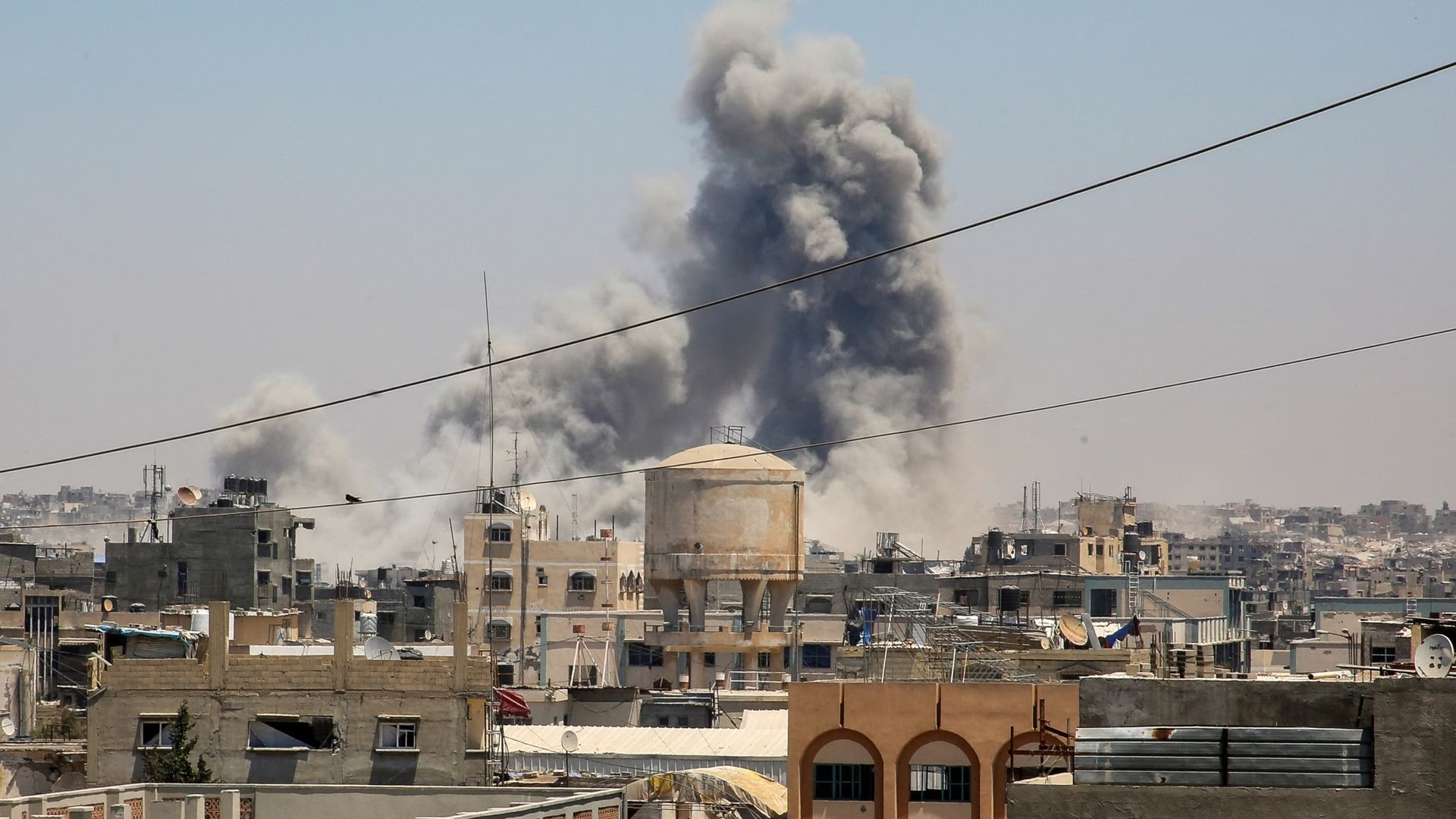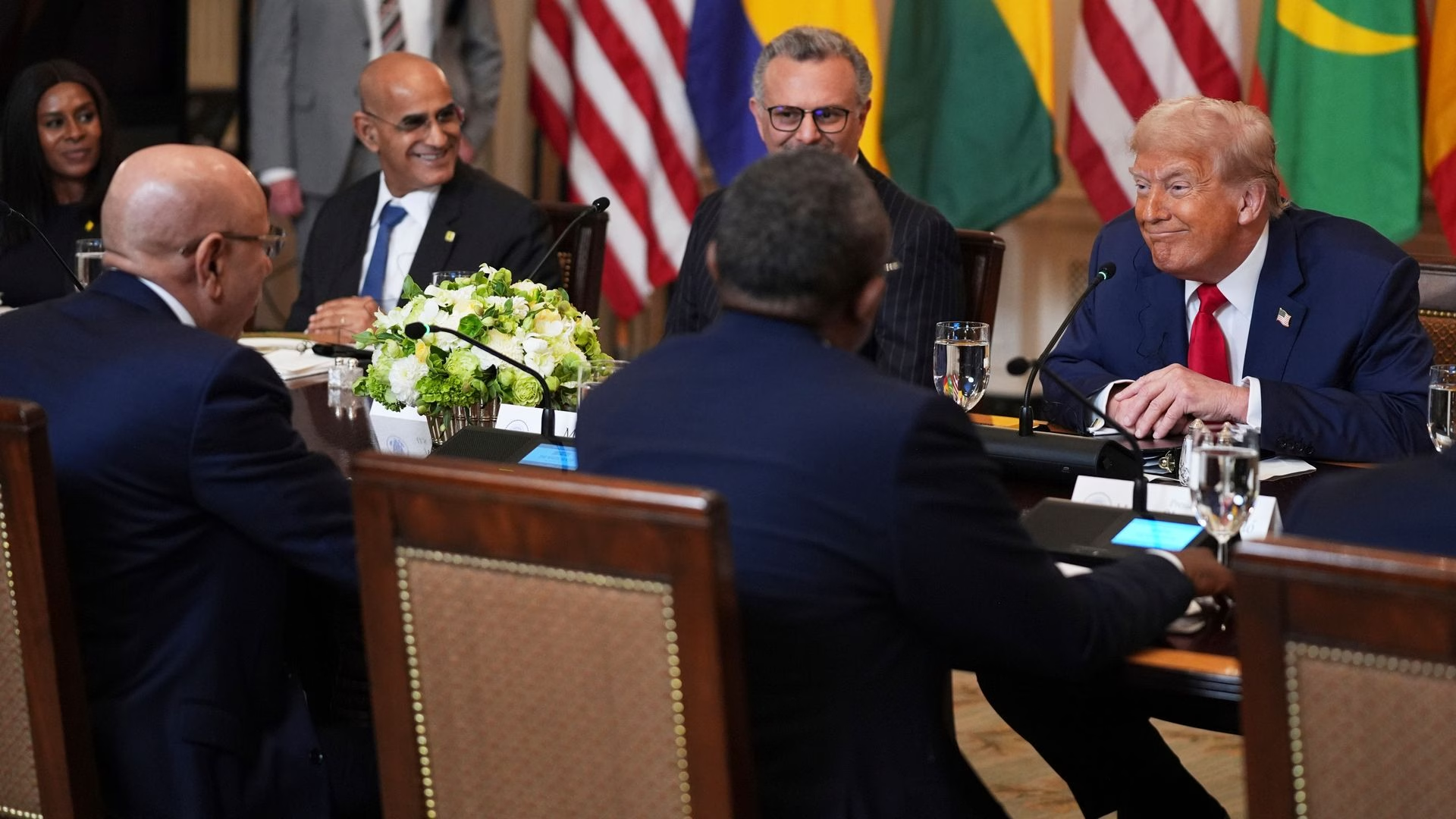
A joint Lebanese-Palestinian committee tasked with the removal of weapons held by Palestinian factions in Lebanon’s refugee camps has met for the first time to begin hashing out a timetable for disarming the groups.
The Lebanese-Palestinian Dialogue Committee, a government body serving as interlocutor between Palestinian refugees and officials, met on Friday with Lebanese Prime Minister Nawaf Salam in attendance.
list 1 of 3
Israel attacks Lebanon with “most violent” strikes since ceasefire
list 2 of 3
Lebanese PM condemns wave of Israeli attacks on southern Lebanon
list 3 of 3
Lebanese Civil War began 50 years ago. Here’s how one photographer saw it
end of list
The group said that “participants agreed to launch a process for the disarmament of weapons according to a specific timetable”.
It added that it also aimed to take steps to “enhance the economic and social rights of Palestinian refugees”.
A Lebanese government source told the news agency AFP that disarmament in the country’s 12 official camps for Palestinian refugees, which host multiple Palestinian factions, including Fatah, its rivals Hamas and Palestinian Islamic Jihad, and a range of other groups, could begin in mid-June.
Under a decades-old agreement, Lebanese authorities do not control the camps, where security is managed by Palestinian factions.
Advertisement
The meeting comes as the Lebanese government faces increasing international pressure to remove weapons from the Iran-aligned Lebanese armed group Hezbollah, which fought a war with Israel last year.
“The message is clear. There is a new era, a new balance of power, and a new leadership in Lebanon, which is pushing ahead with monopolising arms in the hands of the state,” said Al Jazeera’s Zeina Khodr, reporting from Beirut.
“It has already begun to dismantle Hezbollah’s military infrastructure in southern Lebanon, and the next phase appears to be the disarmament of Palestinian groups in camps before it addresses the issue of Hezbollah’s weapons in the rest of the country,” she said.
Earlier this week, Palestinian President Mahmoud Abbas – leader of the Palestine Liberation Organization, dominated by his Fatah party, visited Lebanon and said in a speech that the weapons in the camps “hurt Lebanon and the Palestinian cause”.
During Abbas’s visit, he and Lebanese President Joseph Aoun announced an agreement that Palestinian factions would not use Lebanon as a launchpad for any attacks against Israel, and that weapons would be consolidated under the authority of the Lebanese government.
Al Jazeera’s Khodr signalled that several factions appeared to be against disarmement.
“While Abbas’s Palestinian Authority may be recognised internationally as the representative body of the Palestinian people, there are many armed groups, among them, Hamas and [Palestinian] Islamic Jihad, who … believe in armed struggle against Israel,” she said.
Advertisement
“Without consensus among the factions, stability could remain elusive.”
British Caribbean News


